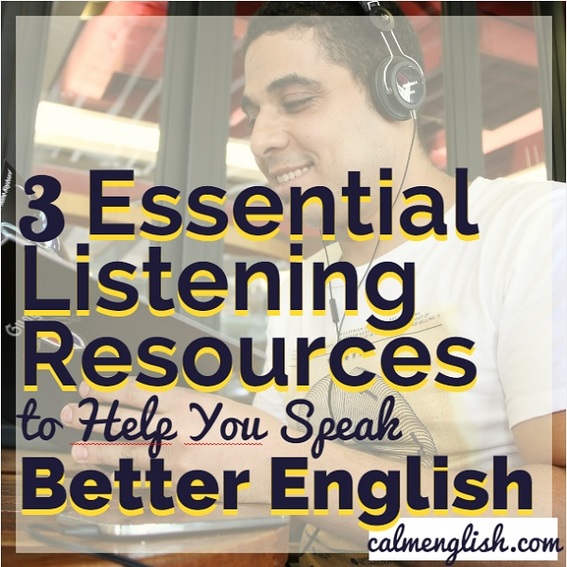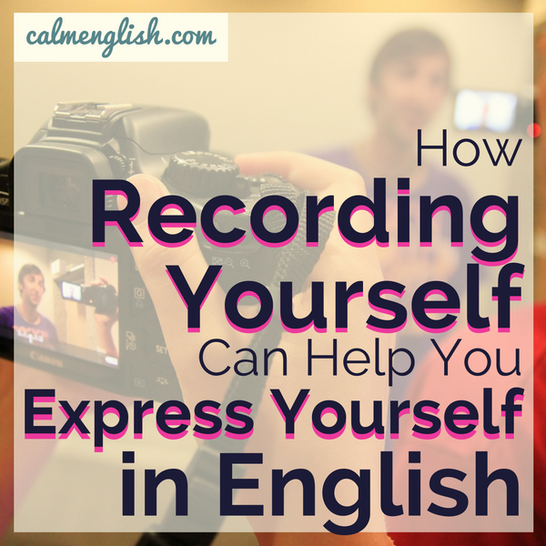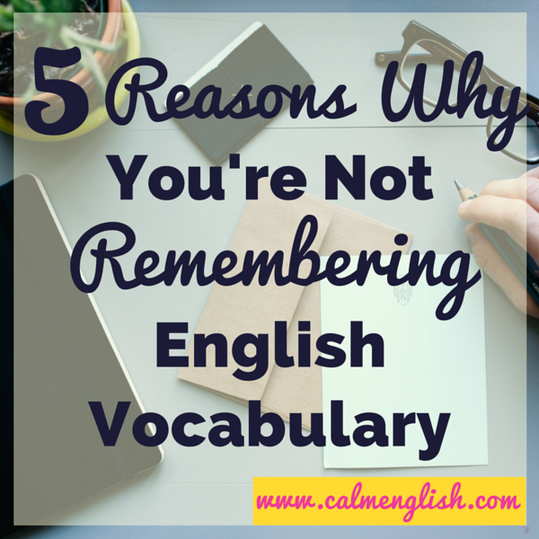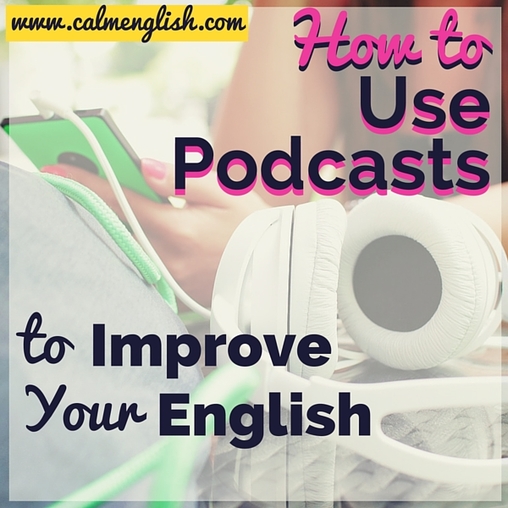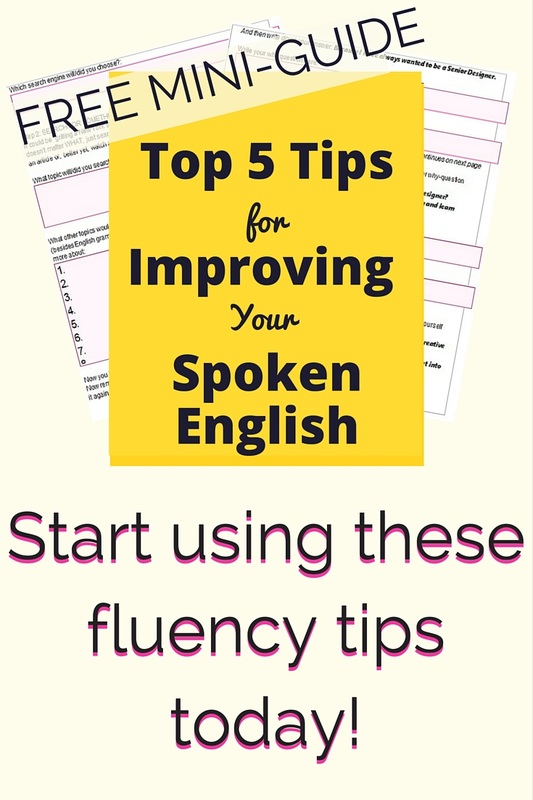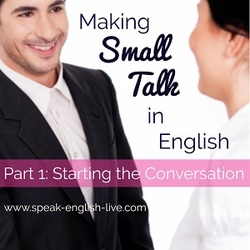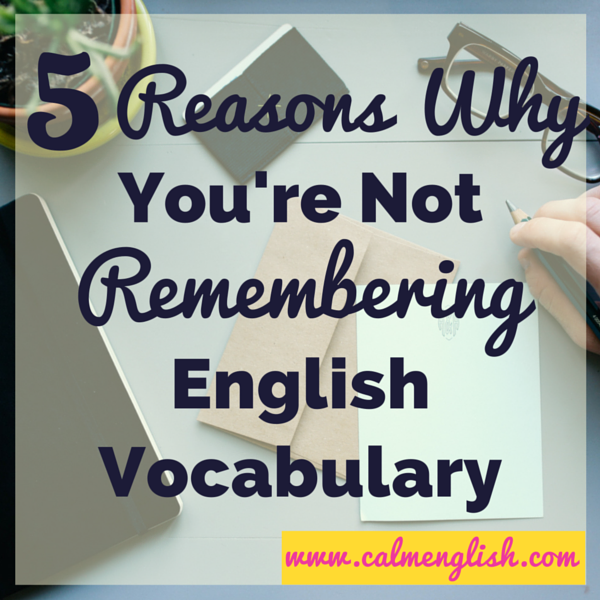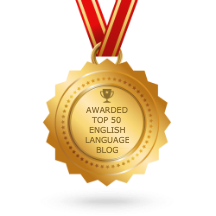|
This year I decided to eat more fruits and vegetables. To make it easy on myself to really achieve this goal, my formula for success looks like this:
Buy vegetables 2x/week + make food with vegetables = me, eating more vegetables. Simple, right? But, what does this have to do with learning English? Well, the things is, you can make your own easy-to-use formulas for English learning too. Easy! Simple! If you’re the kind of person who likes uncomplicated systems that make things simple and effective, this article is for you. And if you feel that the world is more crazy than usual right now, what with all of the 20 social media site you MUST be on, the news and politics, etc… well, this article is for you too. Keep reading to see which of the following 3 systems could make YOUR English studies simpler:
0 Comments
Do you have trouble expressing yourself in English? When I was just learning to speak Spanish, the hardest part was feeling like I was really expressing myself.
I remember my first night out in Buenos Aires, Argentina. I went out with a couple American friends I had just met to a little neighborhood near our dormitory. In a cool, dark bar we met a couple of Argentinian guys. They were friendly guys and spoke slowly and clearly so we could understand them. I remember listening to them speak (and pretty much understanding them) but my only response was a big, stupid smile on my face. When I got home, I realized my face hurt from smiling so much that night! I'll tell you a secret: I was only smiling so much because it was easier than talking and trying to express myself. I felt so embarrassed to speak. Even though I had been studying Spanish for years! Even though I was taking university-level classes. Even though I could write in Spanish. I now know what I was missing in my study plan. What I needed when I was learning to speak was more REAL listening practice. With real materials, not my textbook. So I could listen to, learn and copy REAL language. Most of these materials I could have found for basically free, like on the radio or on the T.V.! I don't want you to make the same mistake that I did. You can use real English listening materials on your own - and most of the resources are free. Read on for my recommendations for the most essential listening resources to help you with your spoken English:
One of the hardest things about learning a language is reaching a point where you REALLY feel like you can express yourself easily and naturally.
I want to share a tool (it's basically free!) that you can use TODAY to start doing just that: expressing yourself more and expressing yourself better in English. This tool is already in your iPhone or smartphone. It's already part of your computer or laptop. And if you have a digital camera, you can use it for free today. It's the video recorder in any and all of your devices. Lights. Camera. Action! Time to record yourself to improve your spoken English and start expressing yourself more. Read on to see how to record yourself and start speaking better English today:
You already know most of the important vocabulary for work. Maybe it's all the medical terms... or talking about your company projects... or all the IT vocabulary.
But you feel like you can't really express yourself if you want to talk about everyday English things. And talking about emotions or deep ideas is even harder! That's why I put together this whole series (that I will release in the month of August) on EXPRESSING YOURSELF IN ENGLISH. Most of these tips you can do on your own, so get ready to be able to express yourself more even if you don't have a chance to talk to many native English speakers. Let's start with a small, written practice that can help you express yourself better: journaling. Read on for tips on what to write and journal about to help you speak more fluently and express yourself more: Do you ever feel like you just CAN'T remember the words you want to use? This can be so frustrating. Maybe you can listen to a conversation and understand a lot, but when it's your turn to speak, you just "forget" the words you need. There are certain words that I never remember. But, I KNOW I would remember them if I stopped making these five mistakes when learning new vocabulary. I know I make these mistakes. I even see some of my very motivated students making these mistakes! Read on to see what you might be doing wrong when trying to remember vocabulary: There are so many skills you need to focus on when learning another language. You know you need to work on grammar, vocabulary, speaking skills, pronunciation, listening skills, reading AND writing to really feel fluent. Podcasts are one of those tools that you can use to help you with almost every aspect of learning English. Plus, podcasts are free and you can find them on any subject. Are you using this free tool yet? Last week I wrote an article about where to get podcasts and which podcasts I recommend. Head over to that article by clicking here if you need some help picking a podcast. Ok, let’s assume that you’ve got your podcasts now. You know what podcasts you like to listen to, and you have some different episodes saved on your phone or computer. But how exactly should you use podcasts if you want to improve your speaking, listening, grammar and vocabulary? Read on to learn exactly how to really use podcasts to improve your English: |
Click to Learn About
|

